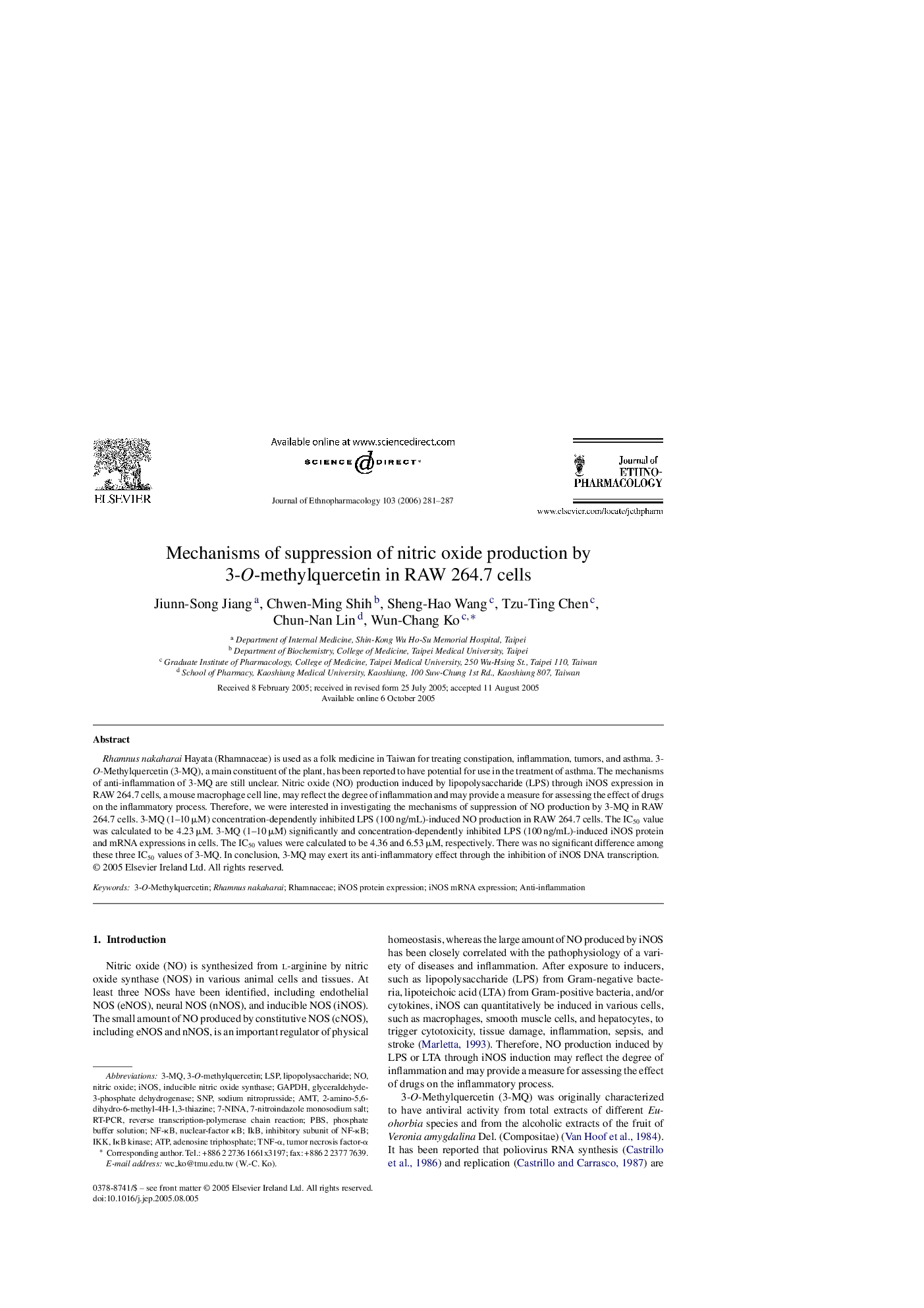| Article ID | Journal | Published Year | Pages | File Type |
|---|---|---|---|---|
| 2547973 | Journal of Ethnopharmacology | 2006 | 7 Pages |
Rhamnus nakaharai Hayata (Rhamnaceae) is used as a folk medicine in Taiwan for treating constipation, inflammation, tumors, and asthma. 3-O-Methylquercetin (3-MQ), a main constituent of the plant, has been reported to have potential for use in the treatment of asthma. The mechanisms of anti-inflammation of 3-MQ are still unclear. Nitric oxide (NO) production induced by lipopolysaccharide (LPS) through iNOS expression in RAW 264.7 cells, a mouse macrophage cell line, may reflect the degree of inflammation and may provide a measure for assessing the effect of drugs on the inflammatory process. Therefore, we were interested in investigating the mechanisms of suppression of NO production by 3-MQ in RAW 264.7 cells. 3-MQ (1–10 μM) concentration-dependently inhibited LPS (100 ng/mL)-induced NO production in RAW 264.7 cells. The IC50 value was calculated to be 4.23 μM. 3-MQ (1–10 μM) significantly and concentration-dependently inhibited LPS (100 ng/mL)-induced iNOS protein and mRNA expressions in cells. The IC50 values were calculated to be 4.36 and 6.53 μM, respectively. There was no significant difference among these three IC50 values of 3-MQ. In conclusion, 3-MQ may exert its anti-inflammatory effect through the inhibition of iNOS DNA transcription.
